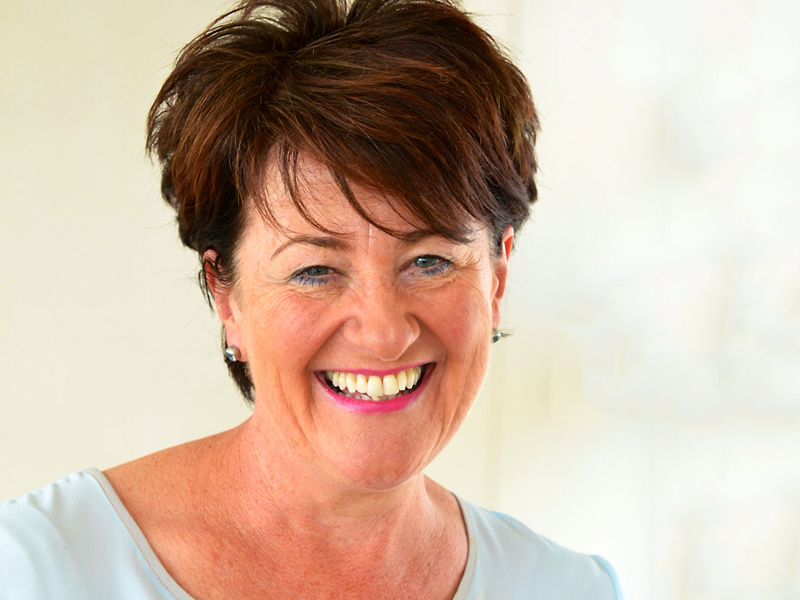We continue our global influencers series this month in conversation with Ann Pickering. This was a recorded interview that you can listen to its entirety on the new Chief Wellbeing Officer podcast here.
Thanks for taking the time to talk today Ann. You’ve been working in Human Resources most of your career. What have been some of the main changes? Can you contrast HR within telecommunications compared to your previous roles?
I started my career in a large retail company, which at the time was hugely successful but has faced significant challenges since then. And I look back and wonder why. What this company was excellent at was process and procedure. You walk into a store, you feel comfortable. You can see where anything is. While that was the secret of its success twenty-five years ago it doesn’t add anything now. So process and procedure is fine but this is about human beings. What I’ve realised is you have to create a culture based on trust. Businesses that trust their people to come into work and do a great job are the ones that are most successful. In many organisations, it’s all about presenteeism. You have to be at your desk at 8am. Still got to be there at 6pm. That’s not conducive to great working environments and nobody wants that. It’s not motivational. So for me trust is the foundation of any successful company irrespective of what sector it operates in.
Yes absolutely. We’ve found many cases where people spend too much of their day in the company, and they’re not always doing a good job. And I think such a dynamic will be even more important in the future.
Yes, and that comes back to trust. In O2, we have a very healthy regard to the fact that people have a life outside work and we have a culture of flexible working which means some of the time I don’t know where my people are. And do you know what? I don’t really care, as long as they do what is required of them. When I look at the engagement surveys that we do twice/year in the UK the most common verbatim comment is “I love the fact you trust me to do my job in a way that works best for me.” And I think that’s great. Where people are sitting is an irrelevance. If that means they can drop their child at school and then come into work, or drop their child at school and work from home I’m really relaxed about that. I will get the best out of that person. The danger in organisations that decide flexible working isn’t for them is they will not hire the best people. If you want talent it shouldn’t matter where they live or where they sit. It’s whether they can do the job. We’re in a technological age, it should be an enabler, and I firmly believe if you have a culture of flexibility you’re going to be able to hire the best talent.
Talent ties closely to learning. What direction are you taking the L&D function at O2?
We’re trying to move to something that’s more digital, so that people can access learning anytime and anywhere. I think that’s really important, so it’s not all face-to-face. I want to generate a culture where people “pull” learning rather than us pushing it. I want people to sit down and think about what they need to do to get where they want to be, and create a plan, say over 12 months that is delivered through blended means. We need to move away from one-size-fits-all classroom based training. Now there’s still a place for that but I think we need to shift the emphasis somewhat. In terms of leadership, I’m trying to create a coaching culture, I think that’s really important. I want to create leaders who are more resilient and much more open to challenge. Challenge is good, it creates better outcomes. I’m not sure that the culture in O2 is there yet, it’s something we need to work on. So I want to shift to a high performing culture where learning is part of that.
Included in that is health and wellbeing. You know, whenever I talk to our Talent Programs or Women in Leadership Programs I emphasise the need to look after themselves which is often the thing that drops off the To-Do list. And you will know this Steven, you become a much better leader for it. If you’re fit and healthy and that’s not about being a size 8, it’s not about looking like Julia Roberts, it’s about keeping yourself fit and healthy – you will be a better leader, there’s no two ways about it.
We’re sitting here today in Telefónica’s plush Soho offices, and there are perks in an executive life right? There are good and bad elements in a demanding career. Can you tell us a little more on a personal level of your own health and wellbeing the past few years?
Sure. For me keeping fit and healthy is really important. I perform better if I’m getting enough sleep, doing some exercise. I just make better decisions. I set a target for myself to do four 10k runs/year. So I run 3-4 miles a couple times a week and I get to the gym and do some weight training. And the bottom line is, as you get older it gets harder. So you’ve really got to keep at it. And the only way to do it is to make sure it’s incorporated into your daily life. I also run with my sister so it’s very sociable and we catch up on family stuff. So it’s hard to maintain but I am definitely a better leader as a result of it.
I’m aware of some of the work you’ve done on Mental Health at the company. Is the key to create an open culture for all aspects of wellbeing, physical or mental? Was there reticence at the beginning? especially around mental health which is a sensitive subject. It comes back to the issue of trust right?
Absolutely. It all comes down to this: if you have employees who come into work feeling comfortable with who they are, they will do a better job. It’s really important that we create a culture where people feel motivated to do that. And that’s what we strive for. As a result I think we have a very supportive, tolerant culture. One of the things I always say to people in our leadership courses is that kindness and compassion is a much under-rated value in business. A compassionate leader is a strong leader. It’s not a sign of weakness.
Regarding the future. We’re looking at increasingly rapid change and disruption. Whether it’s talk of Artificial Intelligence, or even political upheaval, such as Brexit here in the UK. What do you think about the future? Optimistic?
The world is in a very peculiar place at the moment. Who’d have thought we would be leaving the European Union. Who would have thought that Teresa May would not get a majority. The world is just so unpredictable. Therefore stability is really important and creating an organisational culture that is stable and flexible is going to be key. I don’t know how Brexit is going to affect O2 yet, so improving the resilience of our people is going to be really important so whatever changes come along we will be strong enough to cope. The other thing I would say regards the pace of change. I don’t know what skills I’m going to need in five years time in O2. If you said to me seven years ago I would have a team of 25 people and all they do is talk to our customers via social media I wouldn’t have believed you. For me Facebook was for kids. Yet our data shows that customers who have an interaction with our social media team have a 5 point higher satisfaction than those that don’t. So that’s the power of social media, its not just for kids. Recruiting for attitude will be much more important in the future given the fact we don’t have a crystal ball – if we get people with the right mindset I can train them to acquire the right skills.
With an open mindset to change right?
Absolutely. And that will bring its challenges. It already has. We’re bringing in a lot of young people to O2 who are graduates and apprentices whose needs are very different. We’ve had to adapt to their needs, not the other way round. So we need leaders who are flexible, resilient and open to change and uncertainty. That’s the world we live in today and they have to be able to cope with ambiguity.
Great. Many thanks for your time today Ann. A real pleasure talking to you.
About the Author
 Dr. Steven MacGregor, founder of The Leadership Academy of Barcelona [LAB] and author of Sustaining Executive Performance (Pearson 2015) , has delivered over 1000 sessions the past 5 years in executive health and behaviour change for clients including Telefónica, Danone, IESE, IMD, and the BBC. He holds a PhD in Engineering Design Management and has been a Visiting Researcher at Stanford and Carnegie-Mellon. His executive education teaching is informed by academic interest in sustainability and design and he is an article reviewer for, among others, Industry and Innovation, Journal of Engineering Design, and the International Journal of Design Creativity and Innovation.
Dr. Steven MacGregor, founder of The Leadership Academy of Barcelona [LAB] and author of Sustaining Executive Performance (Pearson 2015) , has delivered over 1000 sessions the past 5 years in executive health and behaviour change for clients including Telefónica, Danone, IESE, IMD, and the BBC. He holds a PhD in Engineering Design Management and has been a Visiting Researcher at Stanford and Carnegie-Mellon. His executive education teaching is informed by academic interest in sustainability and design and he is an article reviewer for, among others, Industry and Innovation, Journal of Engineering Design, and the International Journal of Design Creativity and Innovation.




























